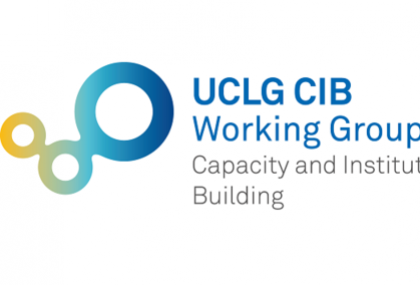
As part of the Feminist Municipal Movement session of the UCLG 7th World Congress, the CIB Gender Equality and Inclusive Governance Knowledge Hub was launched:
A Resource to Support LGAs and LRGs in Advancing SDG 5 through the UCLG Capacity and Institution Building (CIB) Working Group
As they contributed to developing the priorities and targets for the Sustainable Development Goals (SDGs), local government leaders from around the world recognized that they are “policy makers, catalysts of change and the level of government best-placed to link the global goals with local communities.” Achieving Gender Equality and Empowering All Women and Girls (SDG 5) is a linchpin for Agenda 2030. Local and regional governments (LRGs) play critical roles in localizing and advancing gender equality through feminist, inclusive, and caring practices[1].
The Challenge: Until now, progress on SDG 5 is not fast enough to meet the global target by 2030. As a whole, the municipal sector remains ill-equipped and fragmented in its effort to lead the transformative change that the agenda implies. However, the experience of LRGs shows that there is plenty of room for improvement, while many measures and policies are neither expensive nor complicated. Opportunities, evidence, good practices and tools need to be better highlighted and promoted.
The Knowledge Hub: The Capacity & Institution Building (CIB) Working Group and partners[2] are proposing to establish a Gender Equality and Inclusive Governance Knowledge Hub (Knowledge Hub) as a global collaborative platform for CIB members to help strengthen the Feminist Municipal Movement, championed by UCLG.
The CIB Secretariat and partners, both from within and outside of the CIB membership, will co-lead and co-facilitate the development of the hub as a space where local government elected officials and staffs, and their associations, can advance their efforts to achieve gender equality.
One component of the Knowledge Hub will aim to create a space of dialogue, connection and collaboration for local government practitioners and activists within the municipal movement. The second component will develop an interactive online library that will function as a dynamic and curated repository of resources, regularly updated and organized by categories.
Proposed Initial Priority Areas of Focus for the Hub (2022-2024):
1. A champion program for female local elected leaders to increase their capacities and opportunities to contribute to the global feminist municipal movement.
2. A toolkit to equip Local Government Association (LGA) with material and tools available to mainstream gender equality in local policies, programs and actions –with a focus on the provision of gender-sensitive public services.
3. An improved access for LGAs and local leaders to existing evidence and research about the impact of gender mainstreaming in LRG’s affairs.
USEFUL REFERENCES
Rationale: Gender inequalities are still deep-rooted in most, if not every society. Women remain under-represented in political and economic decision-making processes. And they face occupational segregation, lack of access to decent work, and gender wage gaps.[3] Policy wise, much of the public service is still designed without any consultation, and in particular with women.
Roles of LGs in SDG5: With respect to SDG 5, LRGs have direct and indirect roles as follows[4]:
- LRGs can act as a model for gender equality and the empowerment of women through non-discriminatory service provision to citizens and fair employment practices.
- LRGs are on the frontline of identifying and tackling violence and harmful practices against women.
- LRGs and rural municipalities can identify and tackle barriers to women’s equal access to land control and ownership.
- Getting more women into elected office at local level is a top priority in terms of empowering women, both as a goal in its own right, and because local politics is often the first step to regional and national office. Female leaders in LRG can challenge gender stereotypes and set an example to young girls.
- LRGs can mainstream gender equality across all areas of their work in order to tackle the multiple barriers to women’s empowerment.
- LRG are close to their communities, but require data, knowledge and consultation at neighbourhood level to know them better in terms of rights, health, educational needs.
- LRGs are aware of unpaid care and voluntary work. They are well positioned to find and implement solutions that do not marginalize, but rather acknowledge contributions at individual, community and society levels.
- Policies and public services, such as transport, social infrastructures and services that reduce burdens and fears make a major contribution to enable the full participation to public life by women, girls, the elderly.
- Practical inclusion policies can also denote and enable reproductive rights, access to health service and elimination of forced marriage, challenges that have increased during the pandemic, which limited public life around schools, work or access to services.
Relevant SDG 5 targets: UCLG identified the following relevant targets for LRGs:
5.1 End all forms of discrimination against all women and girls everywhere
5.2 Eliminate all forms of violence against all women and girls in public and private spheres, including trafficking and sexual and other types of exploitation
5.3 Eliminate all harmful practices, such as child, early and forced marriage and female genital mutilations
5.4 Recognize and value unpaid care and domestic work through the provision of public services, infrastructure and social protection policies, and the promotion of shared responsibility within the household and the family as nationally appropriate
5.5 Ensure women’s full and effective participation and equal opportunities for leadership at all levels of decision-making in political, economic, and public life
5.a Undertake reforms to give women equal rights to economic resources, as well as access to ownership and control over land and other forms of property, financial services, inheritance, and natural resources in accordance with national laws
5.c Adopt and strengthen sound policies and enforceable legislation for the promotion of gender equality and the empowerment of all women and girls at all levels
